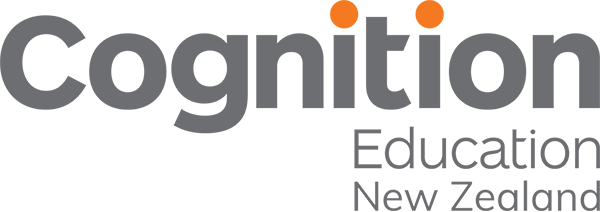Educational trends come and go and those of us who have been around for long enough, we have seen our fair share of the latest idea, presented as a “silver bullet’’ or the “future of education”, or both. We can be excused for feeling a little jaded or cynical as the next ‘fad’ descends. All too often these concepts enter our vocab and are rarely unpacked in detail. Therefore, they are destined to remain simplistic slogans which are either supported or opposed without being sufficiently unpacked to interrogate what they actually mean.
My fear is that the concept of learner agency and the idea of providing learner-centred educational experiences could well follow this fate. This would be a shame, maybe even a tragedy, and an opportunity lost.
At its core learner agency is about developing a young person who has the power to act.
It has little to do with whether we consider ourselves as a traditional or an innovative teacher or whether the school we teach at is classified as traditional or innovative. It has little to do with whether we agree with flexible learning environments or prefer the single-cell environment (although my personal view is that flexible learning spaces can assist in creating opportunities for learner agency).
Learner agency has less to do with a rigid pedagogical stance or adherence to a number of specific strategies. It is based on a teacher’s personal position and belief that their role is to grow self-regulating, accountable, responsible individuals who are inquisitive, innovative and curious problem solvers. This then is learner agency, the creation of empowered individuals who, when they leave school, are confident in their abilities and competent in their skills to become the adaptive adults that the world is crying out for.
At Rolleston College, the school I was Foundation Principal of, our mission statement was to,
“create individuals who can build communities and transform futures.”
The purpose of learner agency is to create empowered individuals who can make the world a better place.
To achieve this we, as educators, need to accept that learning is no longer just content acquisition. Knowledge will always be important, but it is no longer enough to merely fill young minds with it. They need to know what to do with it, how to interrogate it, access it, adapt it and use it. A blog by George Couros elaborates on this need for learners to not only learn but also solve and create by having school-based experiences where they can develop genuine agency.
It is time to reject this simplistic desire to categorise and polarize educators into camps as these are artificial constraints and serve only to divide the educational community. The simplistic view that an “innovative” teacher and/or environment must, by definition, result in unstructured, chaotic anarchy where mobs of learners maraud around unsupervised, and a traditional single cell classroom is some sort of Victorian dictatorship, needs to end. Neither is helpful, neither is true.
It is time for us as educators to interrogate the concept of learner agency and realise that it will always take a variety of age and skill-appropriate approaches to achieve genuine empowerment.
It is time for us to interrogate the fears of Ken Robinson and others who see a reluctance in educators and school systems to adapt to the demands of the modern world as a crime against creative and curious young minds.
Inevitably, this debate will lead us to question and interrogate our current practices and structures. It will lead us to question how and why we assess, how and why we give feedback, how important relationships are in the empowering of learners, how we allow learners to use their prior and existing knowledge, and who do the structures of a school serve, the learners or the system?
We will inevitably continue to question the curriculum (national and local), the tasks we give our classes, how we group our learners, where they learn, what they learn and how they learn it.
So many questions but ultimately, the debate will ask us to question some of our long-held views and ask ourselves, how do we know? Luckily there is a constant stream of material being produced by educational thinkers like Ed Sheninger to provoke, inspire and activate our still curious minds.
This is where we need to open up conversations and opportunities, informal and facilitated, for professional learning and sharing for both leaders and teachers. We can learn from each other in the best interests of all learners. I certainly look forward to being part of these opportunities.
This is also where external facilitation can help. There are times when an outside perspective, a fresh voice and a new set of eyes cast over a school’s systems and structures can be an immense help in moving a process along or assisting in providing clarity.
Ultimately, I believe this debate will lead us towards seeing the individuals in front of us as being on a journey towards empowerment that consists of learning, solving and creating that takes many years, and our job is to enable this process.
Steve Saville is a Cognition Education Consultant who has significant experience across a range of education settings. He was the Foundation Principal at Rolleston College and worked as Deputy Principal at Alfriston College prior to that. Steve has extensive experience in leading and developing authentic, skill-based learning contexts that empower learners and teachers.
Contact Steve today to discuss a PLD solution for you! SSaville@cognitioneducation.com

